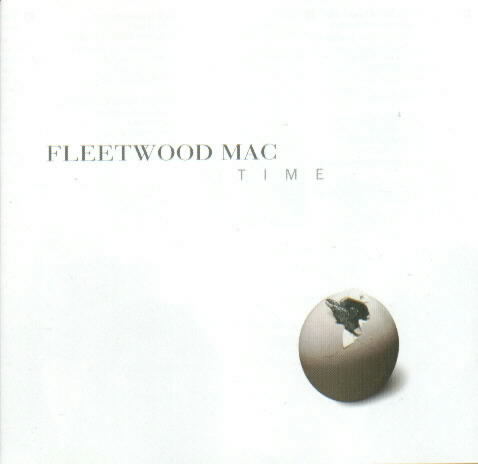
Time (1995)

1. Talkin' to My Heart
2. Hollywood (Some Other Kind of Town)
3. Blow By Blow
4. Winds of Change
5. I Do
6. Nothing Without You
7. Dreamin' the Dream
8. Sooner or Later
9. I Wonder Why
10.Nights in Estoril
11.I Got It in For You
12.All Over Again
13.These Strange Times
If nothing else, Time serves as a monument to Fleetwood Mac’s staggering resilience. By 1995, the band’s “classic” lineup had long since dissolved, and what remained bore little resemblance to the group that had ruled the charts and airwaves through the ’70s and early ’80s. Lindsey Buckingham was gone. Stevie Nicks had also departed. Rick Vito, Buckingham’s former placeholder, had exited too—quietly, and without much public concern. That left Christine McVie as the sole remaining link to the band's commercially golden era, now surrounded by a cast of relative strangers.
The replacements? Dave Mason, of Traffic fame, was brought in on guitar and vocals—an inspired choice on paper, if not in execution. And then there was Bekka Bramlett, enlisted perhaps in the hope of supplying a female counterpoint to Christine and a spiritual successor to Nicks. On that front, expectations were understandably high.
Unfortunately, as Time proves, good intentions alone can’t manufacture chemistry.
Bramlett is, by far, the strongest new presence here. Her vocals—soulful, commanding, and refreshingly unpretentious—anchor several of the album’s better moments. Dreamin’ the Dream and Winds of Change are genuinely affecting, and had this been a different band, or a different context, her contributions might have been more warmly received. But stepping into the void left by Nicks is a thankless task. She wasn’t Stevie—she didn’t sound like Stevie, didn’t write like Stevie—and for many fans, that was reason enough to dismiss her outright. A shame, because Bramlett was never trying to impersonate anyone. She brought her own strengths to the table, and they’re worth acknowledging.
Not so for Dave Mason, whose inclusion remains one of the more mystifying decisions in Fleetwood Mac’s already labyrinthine history. His songs (Blow by Blow, I Wonder Why) are middling at best—competent, but utterly out of step with the rest of the band’s aesthetic. His gravelly delivery and straight-ahead rock leanings feel jarringly out of place, as if he wandered into the wrong session and nobody bothered to stop the tape. It’s not the worst thing the band has ever released, but it might be the most irrelevant.
Christine McVie, as always, provides a few moments of grace. All Over Again and Nights in Estoril showcase her usual melodic intuition, and her voice—familiar, comforting—is the album’s anchor. Yet even her best efforts feel diminished in this setting. Without Buckingham’s sonic textures or Nicks’ mysticism to balance her, her songs seem stranded—pleasant, but somewhat adrift. One can't help but imagine how much stronger these tracks might have sounded in a different context, with the full classic lineup behind them.
Billy Burnette, the remaining half of the Behind the Mask tandem, contributes a pair of tracks (Talkin’ to My Heart, I Got It in for You) that neither offend nor impress. His voice is sturdy, his playing competent, but again—this is Fleetwood Mac in name only. The sound, the energy, the distinct creative interplay that once defined the band is conspicuously absent.
And then there’s Mick Fleetwood, who steps up not just as drummer but as composer and (sort of) vocalist on These Strange Times. It’s a spoken-word, tribal-inflected piece—more a meditation than a song. And oddly enough, it may be the most emotionally authentic track on the album. In it, Fleetwood doesn’t try to mask the existential fatigue of a band that no longer resembles itself. Instead, he embraces it. Strange times, indeed.
Time really isn't all terrible. It’s competently played, occasionally inspired, and at moments even moving. But it’s also a document of a band caught in identity crisis—Fleetwood Mac by title, but not by spirit. Without Buckingham and Nicks, the band simply lacked the artistic tension and chemistry that had powered their finest work.
As expected, the album landed with a thud. It received little airplay, failed to chart meaningfully, and the band (such as it was) quietly disbanded soon afterward. Bramlett, Burnette, and Mason moved on, their tenure in the Mac canon reduced to a curious footnote.
Fleetwood Mac would, of course, return again—because they always do. But Time stands as the inevitable endpoint of a version of the band that had simply run out of road. Admirable in its perseverance, but ultimately, a record more about survival than inspiration.
Go back to the main page
Go To Next Review